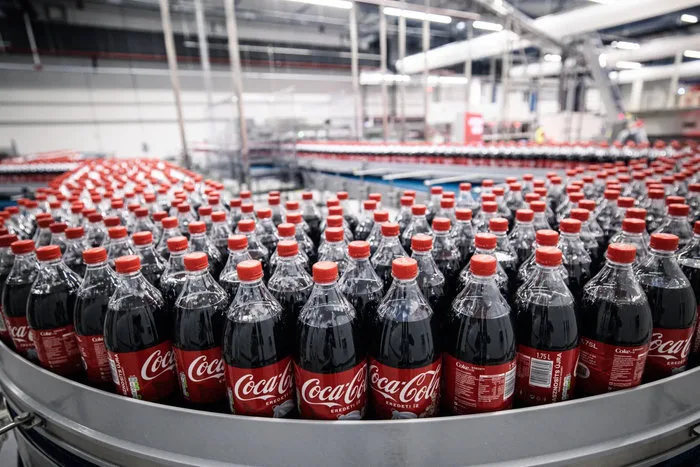By Naveen Athrappully
Coca-Cola reported a year-over-year increase in its net revenues and gross profit for the third quarter of 2025, according to an Oct. 21 earnings release from the company.
The company netted $12.45 billion in revenues for Q3, up by 5 percent from the $11.85 billion earned in the same quarter in 2024, while gross profit for the recent third quarter was $7.65 billion, up by 7 percent.
Unit case volume grew 1 percent globally, driven by a 4 percent jump in the Europe, Middle East, and Africa markets, said the release.
Case volume growth was more pronounced among Coca-Cola’s zero sugar offerings, with Coca-Cola Zero Sugar growing by 14 percent and Diet Coke/Coca-Cola Light by 2 percent.
In the North American market, unit case volume remained flat, with a growth in tea, coffee, sports, and water drinks getting offset by declines in the company’s Coca-Cola, juice, dairy, and plant-based beverages.
“While the overall environment has continued to be challenging, we’ve stayed flexible—adapting plans where needed and investing for growth,” said James Quincey, CEO of The Coca-Cola Company.
“By offering choice across our total beverage portfolio and leveraging our franchise model’s unique strengths, we’re gaining ground and strengthening our leadership position. We’re confident we can deliver on our 2025 guidance while also working to achieve our longer-term objectives.”
At the New York Stock Exchange, Coca-Cola shares closed at $68.44 on Monday. On Tuesday, the day when third-quarter results were released, shares increased to close at $71.22, up by more than 4 percent from Monday.
Coca-Cola shares are now trading near the $74.38 yearly high hit in late April.
Coca-Cola’s 1 percent global growth in unit case volume contrasts against its rival Pepsico’s 1 percent decline in beverage sales volume for the third quarter, according to Pepsico’s Oct. 9 earnings release.
Switching to Cane Sugar
Coca-Cola is also in the process of offering cane sugar Coke in the United States.
In a July 17 post on Truth Social, President Donald Trump revealed that he has been “speaking to Coca-Cola about using real Cane Sugar in Coke in the United States, and they have agreed to do so. I’d like to thank all of those in authority at Coca-Cola. This will be a very good move by them—You’ll see. It’s just better!”
A few days later, the company confirmed it will start offering Coke drinks with sugar cane variants beginning this fall.
In the United States, Coca-Cola uses high-fructose corn syrup to sweeten Coke, an ingredient that has been linked to obesity and other related health issues. The Diet Coke version uses an artificial sweetener, aspartame.
In July, PepsiCo CEO Ramon Laguarta floated the idea of potentially switching out high-fructose corn syrup as a sweetener for drinks sold in the United States.
The Trump administration’s Make America Healthy Again (MAHA) initiative has attributed the rise in childhood chronic diseases partly to the higher intake of ultra-processed foods, many of which contain high-fructose corn syrup.
Agriculture Secretary Brooke Rollins has signed multiple waivers for states, allowing them to ban the use of food stamps to buy soda and other sugary beverages, a move that could negatively affect Coca-Cola.
In a Feb. 24 statement, the American Beverage Association had warned that such buying restrictions on food stamps contribute to rising regulations while treating Americans as “second-class citizens not capable of making their own grocery decisions.”
“The fact is beverages are not driving obesity and chronic disease in America. While adult obesity is up 37.4 percent since 2000, beverage calories per serving are down 42 percent and full-calorie soda sales are down 22.9 percent,” said the association.
“The only real impact of SNAP restrictions is telling certain Americans what to do without providing any benefits for savings to taxpayers.”
The association is chaired by William H. O’Brien, the CEO of Reyes Coca-Cola Bottling, which bottles and distributes Coca-Cola in the West Coast and Midwest.
A Sept. 19 study published in the Nature Metabolism journal found that drinking sugary beverages can raise the risk of colorectal cancer spreading in the body.






